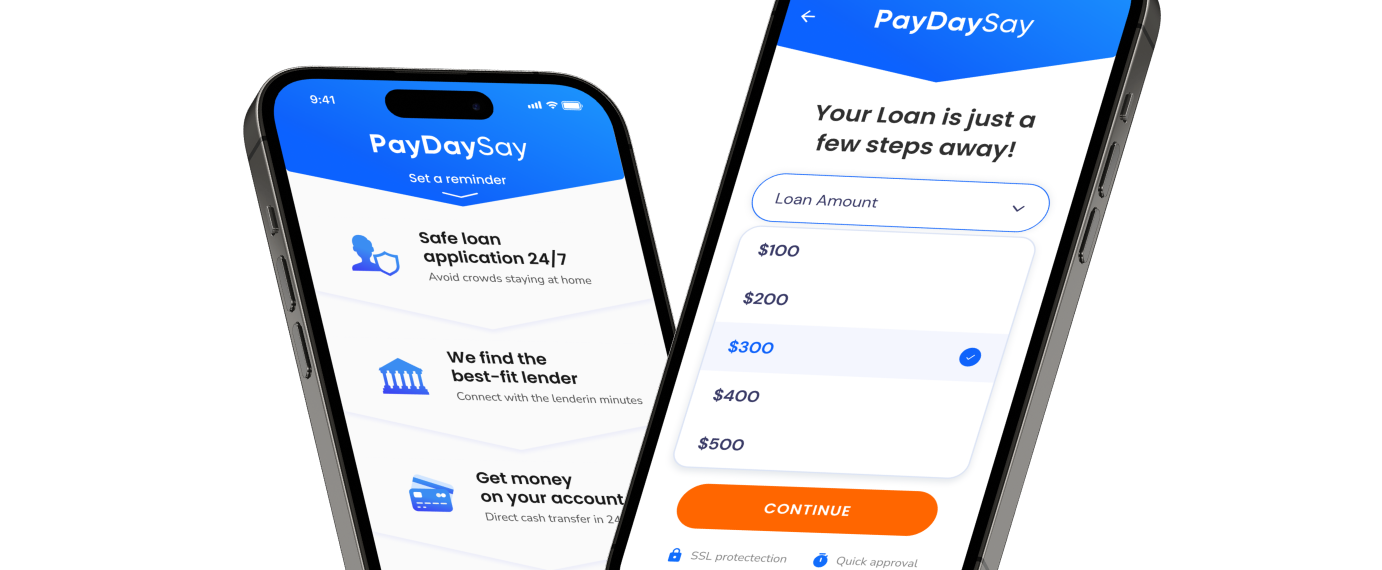In the land of credit scores, the FICO rating is king. Many of us, in one of these fine days, have done something in the heat of the moment that adversely affected our credit scores. Now you may find your head spinning on minimizing that negative impact and improving your credit score.
Well, is there anything you can do to raise it quickly?
These three numbers tell whether you are good at borrowing money and paying it back. All in all, having a healthy score is always good. One thing to remember here is that good credit scores follow good financial habits and vice versa. In its turn, saving and planning will do far more for you than a good rating. Yet, if you’re still thinking about ‘How to increase my credit score?’, the time is now.
What’s Considered a Good Credit Score?
Your credit rating is the best proof of your creditworthiness. Before applying for personal finance assistance from a bank, a borrow money app, or direct lender, you must learn your credit score. Note that the credit scoring models and your rating may vary.
FICO and VantageScore (both range from 300 to 850) are the most popular companies assessing borrowers’ creditworthiness. Both of them will check your credit reports using information from three major credit bureaus to define a credit rating.
According to the FICO score, a poor rating is below 580 points, a fair one ranges from 580 to 669, a good one from 670 to 739, and an excellent credit score starts with 740.
At the same time, VantageScore credit defines poor credit as between 300 and 499, fair – 500-600, good – 601-660, and excellent as above 661 points.
These scoring models share many similar features but still have some differences. They define different values of importance to data in your credit reports. Keep it in mind if you apply for new loans.
Why Does a Good Credit Score Matter?
As you can guess, a good credit rating opens advanced opportunities to borrowers. When you apply for a new credit card or a loan, your rating is the first thing lenders look at. Since traditional lending institutions always conduct hard inquiries, your credit reports from three credit bureaus matter a lot.
People with high ratings have better chances of qualifying for a loan or a credit card. What’s more, they are usually offered lower interest charges and higher credit limits. In such a way, with a good credit report, you can get a higher loan amount with better conditions and terms.
Well, you may answer that there are online lending companies that offer funds without hard credit inquiries. That’s true, but remember that the fees they charge won’t bring about your financial stability.
What Affects Your Credit Score
Life is unpredictable. One day you may need financial help to deal with unforeseen expenses, buy a car or a house. To qualify for a loan, you must meet qualification requirements that include a minimum credit rating.
If you want to improve your credit, knowing what you should start with is essential. Your rating mostly depends on the credit scoring model you choose. However, there are some basic aspects that affect your credit score.
If you have bad credit and want to get a credit card or a loan, pay attention to the following aspects. These records on your credit record play a crucial role in defining your creditworthiness.
Payment History
Your loan repayment habits impact your credit rating most of all. If you deal with FICO, it will take 35% of your total score, if it is VantageScore – 40%.
It means that the easiest way to get bad credit is to miss paydays and ignore your financial obligations. A credit history remembers even the minimum delays in loan or credit card debt repayment.
However, this problem is relatively easy to solve. All you need to do is to make on-time payments. You can set an autopay feature or push notifications about the due date to make your life easier.
What’s more, many credit providers allow borrowers to postpone their payday. But you can use this feature only once or twice per debt repayment.
Note that you may be sent to collections if you don’t fulfill your financial obligations for a long period. If it happens, the collections accounts may greatly damage the borrowers` credit scores.
Credit Utilization
Credit utilization rate is another influential criterion for defining your credit rating. What does it mean, and how is it calculated? Credit utilization shows how much of the available credit you use. The best way to have a high rating is to keep your credit utilization ratio low, no more than 30%.
To calculate your ratio check the available line of credit cards. Then add all your revolving credit card balances and divide it by the total credit limit. Lastly, multiply it by 100.
If you are unsatisfied with the results, you can improve your credit utilization ratio without any difficulties. To make it possible, try to pay more than your regular installment and ask for a credit limit increase.
Length of The Credit History
You may be surprised, but the average age of your credit history is the third most crucial criterion in calculating your rating. The longer your credit accounts age, the better. That is why if you want to get a new credit card, it is better not to close your old bank account.
What’s more, to get a FICO score, your credit age must be above six months. VantageScore doesn’t set such a requirement. This fact may influence your choice of a credit scoring company.
Note that information about collection accounts will stay on your report for many years. The time frame depends on the bankruptcy type. If it is under Chapter 7, the negative information will be recorded for 10 years, if under Chapter 13 – for seven years.
Credit Mix
Another factor that is taken into account while calculating the borrowers’ credit scores are the credit account types you have. However, if you are new to credit assistance, don’t panic. The amount and variety of your credit profiles have a small impact on your credit score and don’t exceed 10% of the overall rating.
Anyway, if your history contains information about student loans, installment loans, auto loans, or other types of financial assistance, it will be a pleasant bonus for you.
Recent credits
You should know that your rating depends not only on the average age of your payment history and credit cards but also on how much time has passed since your last loan application.
If you apply for a loan or credit card, most lenders will conduct a hard inquiry to assess your creditworthiness. Unlike soft credit checks, this one includes checking your credit reports from three credit bureaus. This information will remain on your credit and may decrease your rating by a few points.
Why does it happen? It is believed that if a borrower has several credit cards or loans but applies for a new one, he or she has serious financial problems. In other words, lending companies are afraid that you won’t be able to repay your debt.
How Do You Get Your Credit Score Up?
Imagine you found the house you’ve always dreamed of, but there’s a major impediment that stops you from being happy. What have you forgotten? You haven’t achieved that 100-points increase in your rating.
Don’t want to let someone else get that deal? And you shouldn’t. But how to improve your credit score by 100 points? How long will it take to raise it? Well, this is hardly a secret that credit repair won’t happen instantly. At this point, you need to focus on the below-mentioned factors to boost your credit score immediately. Note that you can cope with the rating boost by yourself or apply to a company like Experian Boost and get professional assistance.
1. Check for errors in your credit report. It may sound weird, but about 5 percent of consumers have errors in their credit reports bad enough to hit the price for a financial product or insurance, claims the Federal Trade Commission.
Don’t let that happen to you. As you see, it’s in your own interest to check your report for mistakes as you can make a free credit revision every 12 months. Mistakes happen, your task is to fix these foul-ups as quickly as possible. Once you do it right, expect to see a higher credit score fast.
2. Set reminders to repay bills on time. To help you avoid missing out on your payment’s debt, schedule payments in advance. It’s a good idea to set reminders or automatic payments so you don’t miss a deadline.
You can also set up a push notification on your smartphone or in whatever program you use to keep track of calendar dates and appointments. No matter the tool, be sure to give yourself plenty of time to calculate and transfer funds. Remember that late payments may result in additional interest charges and decreased credit rating.
3. Clean all credit cards. Your payment history shows a long-term behavior that can tell credit card companies about your financial habits a lot. That is why cleaning your credit card balances makes sense. Once you do it right, a clean credit history can help boost your credit rating.
4. Try maintaining a healthy credit mix. Want to improve your credit score? Think on your feet. Having a mix of credit can be that little bit bump that can up your rating from good to an excellent one. Even being considered only 10 percent of your FICO score, your credit mix can be the strategy to try.
5. Avoid taking multiple loans at a time. As a good rule of thumb, try to repay the current debt before you apply to get new credit. This way, you’ll keep your score from getting low. Don’t show your cash hiccup. Avoid applying for multiple credit accounts in a short period. Instead, paying one debt successfully gives a boost to a credit report.
How Long Does It Take to Increase Credit Score?
As far as you may know, consumer rating ranges from 300 to 850. In case a borrower doesn’t quite qualify, there are ways to improve that rating.
Well, you must remember that you can’t boost your credit score overnight. Usually, it takes 3 – 12 months to raise this important indicator but you need to be smart and patient to do the trick.
Most lenders and credit card companies ask for credit reports on a monthly basis that’s why it’s simply next to impossible to move your rating up in a day or two.
How long does it take to increase a credit score by 100 points? Well, 3 – 6 months would be your most instant result.Forget all the fancy tricks or credit secrets that promise your score to jump overnight. You won’t see immediate results, don’t even expect. If you see credit repair companies offering quick solutions, they are likely to be scammers.
The most importan thing here is that the lower your score, the more likely you are to achieve a 100-point increase, Rod Griffin says, director of public education for Experian.
Both time and good credit habits can help you establish a solid payment history and what’s more important to get access to more favorable interest rates in future. Indeed, a combination of careful planning and smart interventions can give you a boost you need to raise your credit score 100-200 points. Just keep your eyes open, or else you are bound to fail.
Ways to Increase Credit Score up to 100-200 Points
- Make payments on time
You’ll be surprised how much making on-time payments can help improve your credit. Want to get that 100-points increase quicker? Then, don’t shy away from paying more than the minimum amount required. This could be one of the most huge benefits to your credit report.
Whether you know it or not but your payment history is the most influential factor that hits your score. Without a doubt, things happen and circumstances can cause you to fall behind on certain payments. But it’s in your own interest to keep an eye on that one or two late payments before it starts affecting your credit.
One thing to do now is to focus on getting 100% debt free. At the end of the day, you’ll see that boosting your credit score is not all that difficult.
- Take care of your credit utilization ratio
So, make sure you are paying your bills on time and in full as expected. The thing is that this fact alone won’t get you in the high 700s. Even if you pay your balance off on time, one thing you’ve likely missed is your credit utilization ratio. Let’s make it clear, often you pay your debt on the closing date on your credit card account, right? By doing so, you underestimate how much it affects your ratio.
Your ratio is a balance between the amount of credit you’ve used compared to the amount of credit available. Ideally, your best ration should be not less than 30 percent, says Bruce McClary, spokesman of the National Foundation for Credit Counseling. Simply put, lower balances relative to your limits is better.
Now you know how to increase your credit score to 800. Of course, keeping your ratio under 10 percent will do the trick. If possible, pay your bills before the closing day. This assumes you have the money to pay off your expenses. As a result, the lower your ratio, the higher your score is.
If you have balances on several credit cards, make a smart move. Bump up your score by paying down the card with the higher balance. Why? Well, the answer is obvious, before raising your credit rating, the FICO score looks at the ratio of each credit card. So, make sure you take care of the higher credit card balance first.

- Consider yourself a level-headed person with an upward-trending rating
Then trying to raise your credit card limits looks like a sensible idea. Indeed, this option is great for those only who don’t struggle from overspending. So, before you ask for an increase, make sure that your financial situation looks stable.
What will you get? Once your credit limit goes up, your utilization ratio becomes more pleasing. As it goes, the higher the limit, the lower your ratio. Still looking for ways on how to increase credit score with a credit card? Once you manage to raise your credit card limits, expect a boost in your score rating.
What’s on Your Bucket List?
Finally found your dream house but can’t get a big enough loan to buy it? While some people need to boost it to 100 points, the needle might be slower moving for others.
Looking for ways on how to increase your credit score quickly? The time is now. No matter why you need a credit repair, learning how to build credit history can mean the difference in your life. So, it’s enough to waste time because delays kill. Start improving your credit score right away and you’ll see that the wealth-building increases rather quickly.
Useful Tips on How to Keep Your Credit Score
If you want to improve your credit score, you must be patient. This process requires a complex approach to the problem and much time. Firstly, check your credit rating based on consumer credit bureaus regularly. It will help you find mistakes in your credit report (if any) quickly. And the earlier you do it, the easier it will be to fix.
Secondly, try to repay your credit card debt within a given time. Missed payments will decrease your rating considerably and may result in higher interest rate. Remember that late utility payments may have the same effect. In case you need a new credit card or loan, try to avoid hard inquiries.
If you have a poor rating, lower your credit utilization by increasing the lines of credit and covering existing debts. Instead of closing the old credit card, become its authorized user and keep it running. Multiple credit card accounts can help your credit increase by a few points.
Should I Apply For a Credit Repair Company?
A credit counseling agency can really help you improve your credit score. Companies like Experian Boost conduct professional credit monitoring, choose the most suitable scoring model, and work your best rating improvement strategy.
However, don’t think that thanks to credit repair services, your rating will increase within a week or 30 days. If you find offers that promise to boost your rating shortly after you pay, you deal with scammers and may become a victim of identity theft.
Credit repair can take from several months and up to one year. Traditionally, credit counseling services will cost you from $70 to $150 every month.
You should know that such companies will do everything you can do by yourself if you have enough time and energy to deal with your credit situation. If the financial world is Greek to you, then a credit counselor may be your helping hand.


 SSL protection & encryption
SSL protection & encryption











 on your homescreen
on your homescreen
